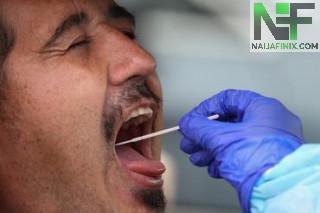Sydney was isolated from the rest of Australia on Sunday after all of the country’s states and territories imposed travel restrictions on its residents as a coronavirus cluster in the city grew to around 70.

The Australian Capital Territory (ACT) sent a stern ‘do not come to us’ message to Sydney, the country’s most populous city of more than five million people, warning its residents they would be quarantined for 14 days if they arrived..
“If you are not an ACT resident and have been in greater Sydney…our message is simple: do not travel to the ACT,” the ACT health department said.
The states of Victoria and Queensland, and the Northern Territory, banned people arriving from Sydney as of Monday.
Queensland police will reintroduce road checkpoints at the New South Wales (NSW) state border to help enforce the new declaration of greater Sydney as a COVID-19 hotspot.
South Australia state imposed a 14-day quarantine for Sydney arrivals on Sunday and banned travellers from affected suburbs. The island state of Tasmania took similar steps on Saturday. Western Australia state imposed a hard border closure.
Travellers from elsewhere in NSW, where Sydney is the state capital, will require documents showing they are not coming from the affected Sydney suburbs if they wish to cross state borders.
About a quarter of a million people in Sydney’s northern beach suburbs where the outbreak has occurred have been put into a strict lockdown until Christmas Eve.
“If we can lockdown here and get rid of it, fantastic and everyone else can be free,” Rachel Buxcon, a retired northern beaches resident said. “But if it extends, then we’re all in it together.”
On Sunday, NSW state Premier Gladys Berejiklian said public gathering across the rest of Sydney will be limited, with household gatherings capped at 10 participants and hospitality venues at 300, among other restrictions.
“We must take this action now to ensure we keep on top of this outbreak,” said Berejiklian.
She also urged people in the greater Sydney area to wear masks in public, although it was not mandatory.
“If you’re going grocery shopping anywhere in NSW, please wear a mask, if you’re going to a place of worship in NSW, please wear a mask … and for goodness sake, do not get on public transport unless you’re wearing a mask,” she said.
Until this week, Australia had gone more than two weeks without any local transmission and had lifted most restrictions ahead of Christmas. The Sydney outbreak and border restrictions have thrown Christmas holiday travel plans into chaos.
The annual Sydney-to-Hobart yacht race starting Boxing Day Dec. 26 has been cancelled for the first time in its 76 year history as crews and their families would have to quarantine on arrival in Tasmania.
Hotels and holiday rentals in NSW have been swamped with mass Christmas cancellations and restaurants have seen the number of patrons drop significantly, local media reported.
“An important reminder as we come into the Christmas holiday season is that the virus has not gone anywhere and we must remain careful,” Australia’s Prime Minister Scott Morrison said in a video message.
Australia has avoided the worst of the pandemic due to border closures, lockdowns, widespread testing and social distancing. It has recorded around 28,100 infections, the overwhelming majority in Victoria state, and 908 deaths.
NSW health authorities said that there were more than 28,200 tests conducted in the past 24 hours and urged more people to get tested. The origin of the virus in Sydney remains unknown, which genome testing suggests is a U.S. strain.
REUTERS


Share your thoughts